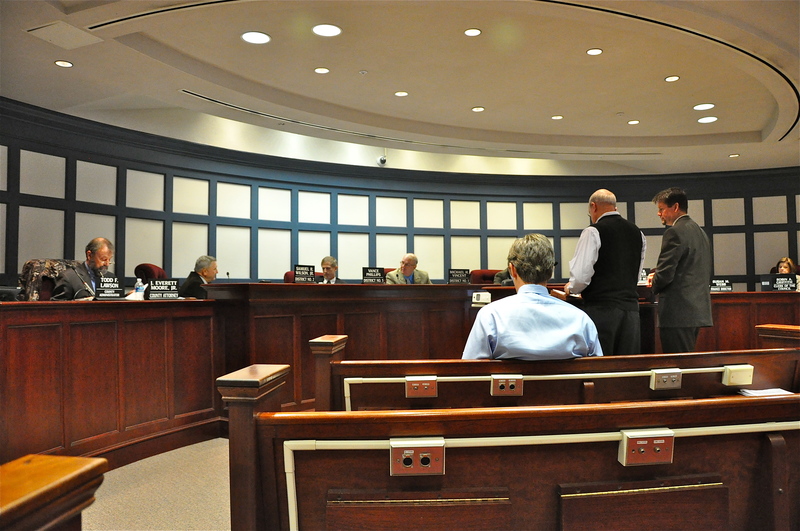Sussex County Council has a detailed plan that dictates how it does business.
Sussex County Council adopted an updated version of its rules of procedure at its Jan. 8 meeting. The 12 pages of rules, first adopted in January 2011, govern the way council runs its meetings and how council and the public are expected to behave.
“The council's rules of procedure are required by state law and provide both the council and the public a level of expectation and fairness when it comes to our governing process,” said County Administrator Todd Lawson.
The rules leave no stone unturned, covering everything from minutes and agendas to record keeping and how appointments are made minutes and how ordinances should be presented.
Agendas: County Administrator Todd Lawson is responsible for preparation and content of each week's agenda. Council members and the public can place items on the agenda by contacting Lawson. For council members, that request can be made in writing or verbally, and for the public, the request must be made verbally at least a week before the next meeting. Items not deemed council business will be handled by Lawson with follow-up information sent to council members.
During a meeting, items can be added or deleted from an agenda by majority vote.
Posting of meetings: Notices of regular meetings are posted at least seven days in advance, but a public notice is not required for emergency meetings when public safety or health is at risk. Meeting notices are published on the county's website and on a bulletin board in the county administration building at 2 The Circle in Georgetown. County staff has recently added a link to a packet of information presented to council and the media at each meeting.
Voting: Any matter to be voted on can be placed on the table with three affirmative votes, but there is one rarely used exception. After 45 days, an ordinance for a zoning change or conditional use can be placed on the table for a vote without three affirmative votes by a council member representing the district. Council President Mike Vincent has the same option.
Ordinances: County government runs on ordinances. Any council member can request a staff member or consultant to draft an ordinance for introduction. It's the council member's responsibility to notify other members when the request is made. Ordinances must first be publicly introduced followed by public hearings.
Appointments: Over the past two years, council has refined the way it makes appointments to the planning and zoning commission and board of adjustment. Board members are selected to represent the same district as the council member who nominates them.
Previously, names were submitted by council members, and votes were taken with little discussion or information about nominees. Under new rules, council members in whose district a board member's term is set to expire must submit the name of a nominee at least one month in advance. Council and Lawson provide interview questions for nominees who must answer those questions during a public meeting.
If a nominee is not approved by council, any member, regardless of the district, can make a nomination, but no more than two members can be appointed for the same district. This procedure is only used for new nominees and not for board members seeking reappointment for another term.
Standards of conduct: Council does not allow persons attending meetings to display posters or signs or wear cause-supporting signs or buttons larger than 3 inches by 5 inches. People attending meetings must also wear appropriate attire and not disrupt proceedings.
Public comment: Council has stressed on numerous occasions that the Freedom of Information Act does not require that public comment be allowed during regular council meetings, excluding publicized public hearings. However, council has instituted a public comment process that allows attendees to speak at the end of each meeting. Under the policy, speakers must sign in and be recognized by the council president. Speakers have up to 3 minutes to talk to council, but more time can be granted by the president.
Council has several guidelines relating to what cannot be talked about during a meeting. Speakers cannot single out a specific council member in their remarks nor can they talk about an item not in council's jurisdiction. No one can use their time to appeal a decision made by a county employee or subcontractor.
The president can respond to a speaker, but under the policy, is not required to. Council can solicit input from staff during the public comment period.
























































